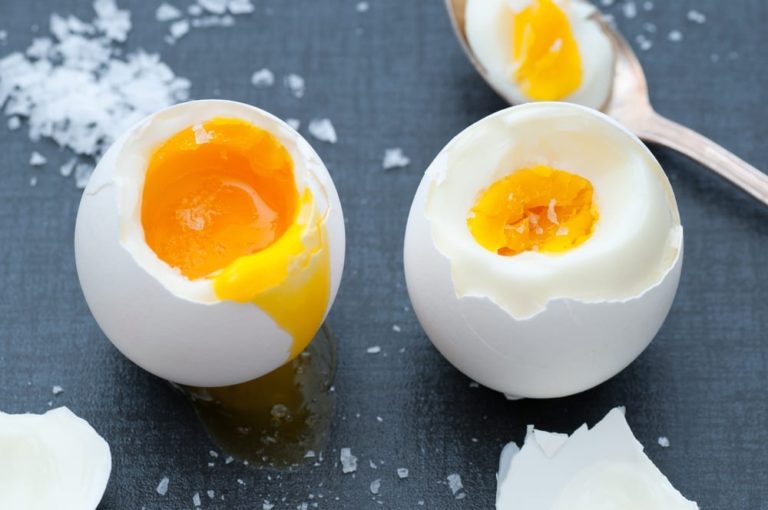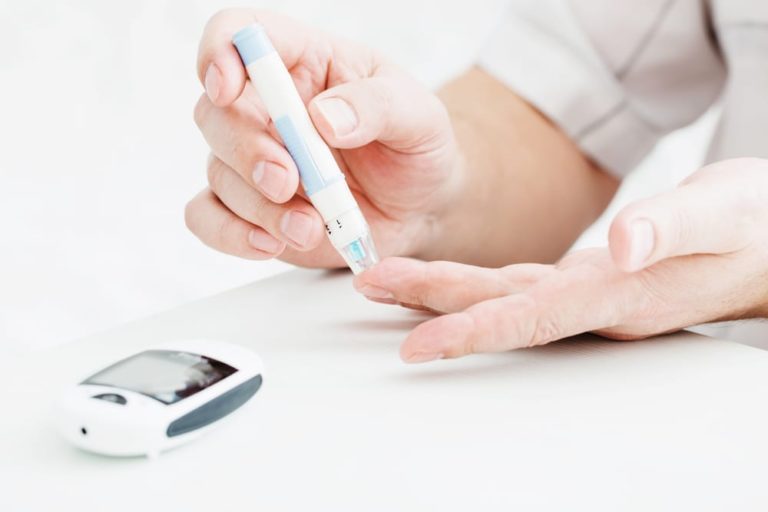You may have heard that getting enough sleep is important. Yes back then from mom and dad, but also later from doctors, in articles or from friends. Today we explain why sleep is also important for losing weight and why too little sleep is bad for you.
Slim in your sleep

Table of contents
1. influence on ghrelin
Sufficient sleep protects against cravings
You wake up in the morning with a huge appetite or even wander to the fridge at night? Maybe you’re lacking sleep… Because even one night of sleep deprivation increases the cravings hormone ghrelin. So if you don’t want to be plagued by cravings, make sure you get a good night’s sleep. “Sufficient” means at least 7-8 hours according to scientific standards.
2. leptin makes you full
Leptin is an important satiety hormone. It was discovered not long ago that leptin is produced in adipose tissue. The more fat is stored, the more leptin is produced and the fuller we should feel. People who sleep too little have lower leptin levels – even though there is actually enough fat stored on their hips. So lack of sleep lowers the satiating leptin and makes you permanently hungry.
Du möchtest auch erfolgreich und lecker abnehmen?

3. melatonin helps insulin sensitivity.
The sleep hormone melatonin has a positive influence on our insulin levels. During the night, this is lowered by the effect of the sleep hormone. This causes your cells to remain sensitive to insulin, allowing them to absorb and metabolize ingested carbohydrates well.
In addition, melatonin lowers plasma lipid concentrations.
In rats with hyperinsulinemia (excessively high insulin levels) and hyperlipidemia (excessively high blood lipid levels), administration of melatonin restored normal insulin and also lipid levels. New studies also show that melatonin is a special antioxidant and can protect your body from free radicals and thus also from cancer and neurodegenerative diseases.
For good melatonin production, it’s especially important that you don’t get too much blue light from TV sets and smartphone screens in the evening.
4. influence on cortisol
Too little sleep cranks up your cortisol production. The more cortisol your body releases, the harder it will be to lose fat and thus reach your desired weight. Cortisol supports gluconeogenesis, the formation of new glucose from proteins. This, in turn, means that when blood sugar levels are too low, your cells don’t use fat as a new source of energy, but simply make new sugar from protein and use it to get energy.
5. influence on somatotropin
Too little sleep inhibits the production of somatotropin. However, somatotropin is particularly important for metabolism. In children it is important for length growth, but when we are adults a deficiency of somatotropin is usually associated with an increased risk of cardiovascular disease and increased fat mass. A deficiency can also lead to a worsened sense of well-being, including on an emotional level.
Always stay up to date with our Newsletter.
Similar posts by Foodpunk

What are proteins actually made of? And do we need them just to look like "The Hulk"? Read here what proteins can do!

Does keto help with diabetes? Should every diabetic follow a ketogenic diet? Read what to look for in our article.

CCK and Bulimia – The Daily Bite of Knowledge
The hormone cholecystokinin (CCK for short) is involved in creating the feeling of satiety in the brain. It causes a meal to end when sufficient nutrients have been delivered.

Do only calories really count?
Proper nutrition has such an effect on us that I think it's a shame how often the influence of nutrition is left out of disease treatments.

What is a refeed suitable for? – The daily bite of knowledge
A refeed is useful for all people who follow a very low-carbohydrate diet (under 30-50 g of carbohydrates per day) for a longer period of time and do this diet for more fitness, well-being and a weight loss.

Eating out – Paleo Restaurants, Low Carb Cafés and much more – in Germany, Austria and Switzerland
Together with our community, we want to create the ultimate list of foodpunk-worthy restaurants in Germany, Austria and Switzerland for you.

5 Facts about Vitamin D – The Daily Bite of Knowledge
For what do we need the vitamin? What does this have to do with cholesterol? Learn more about it here!

You know the saying, "In summer we age and in winter we grow young again!"? There is something to it! We explain to you why cold can have a positive effect on fat burning, the immune system and deep sleep.
